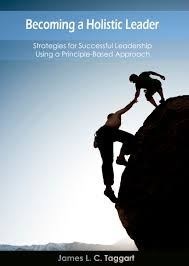Team Learning: Looking Beyond Yourself

There are three key components of team learning:
1. Teams must probe and explore complex issues, drawing on the talents, knowledge and experiences of one another.
2. They must work in concert, coordinating their efforts and communicating openly and closely. Trust is essential since members must be able to rely on one another.
3. Teams must interact with each other so that they can share what they learn.
Nested Teams is one way to express this interaction. Just as there must be interdependency within a team, so too must there be interdependency among teams in an organization.
Team learning must therefore be seen as being a collective discipline. To say that ‘I’ as an individual am mastering team learning is irrelevant. Team learning involves mastering the two primary ways that teams communicate: dialogue and discussion. By dialogue, we’re talking about deep listening and the free exploration of ideas. Discussion, on the other hand, refers to searching for the best view to support decisions once all views have all been presented.
For a team to grow and develop, and to be effective, it’s necessary that conflict be present. This notion may no doubt surprise some people, but unless a team’s members disagree at times, the team will not learn. To think creatively, there must be the free flow of conflicting ideas.
Of course, the team must know how to use disagreements productively. Conflict becomes then a part of the continuing dialogue among the team’s members. Senge explains: “...the difference between great teams and mediocre teams lies in how they face conflict and deal with the defensiveness that invariably surrounds conflict.”
The issue of when and how to use conflict productively is one that escapes most organizations. The consequence is the regular use of defensive routines. To admit that one doesn’t know the answer to a question or problem is to reveal one’s supposed incompetence. This has particular applications to managers because they’re expected to know everything that is going on in the organization. This becomes part of managers’ mental models. Senge states: “Those that reach senior positions are masters at appearing to know what is going on, and those intent on reaching such positions learn early on to develop an air of confident knowledge.”

The second problem they create for themselves is that they sustain their ignorance. To keep up the facade they become very skilled at being defensive. After all, they wish to be seen as being effective decision makers.
Through his work, Harvard emeritus psychology professor Chris Argyris found that such defensive behaviour becomes an ingrained part of an organization’s culture. As he’s stated: “We are the carriers of defensive routines, and organizations are the hosts. Once organizations have been infected, they too become carriers.”
Organizational learning is obviously severely impeded in such a culture. This is underscored especially when teams engage in defensive routines, which block their energy and prevent them from working towards their shared visions.
The more that defensive routines take root in a team, and more broadly the organization, the more they hide the underlying problems. And in turn, the less effectively these problems are addressed, the worse the problems become. As Argyris puts it: “…defensive routines are ‘self-sealing;’ they obscure their own existence.”
All is not lost, however. A team that is committed to the truth will find ways to expose and address its defensiveness. The same applies to a manager who has the courage to self-disclose and examine his mental models to determine where defensiveness may be hidden. This in turn creates energy and the willingness to explore new ideas. Openness and dialogue then become the norm in the organization.
The journey in between what you once were and who you are now becoming is where the dance of life really takes place. –– Barbara DeAngelis
_______________________________________________________________________________________________________

"""
Articles from Jim Taggart
View blog
Your faithful correspondent has been a long-time proponent of self-empowerment, writing extensively ...

The past several posts focused on teams and viewed them through a more or less conventional lens. No ...

Date Line: 1994, · Forbes Magazine · THE NEW POST-HEROIC LEADERSHIP ”Ninety-five percent of American ...
You may be interested in these jobs
-
Exciting Opportunity: Join our Team at Tommy Gun's Calgary · Tommy Gun's is on the hunt for dynamic and enthusiastic individuals to fill the crucial role of a Guest Services Manager. We want YOU to be a part of our exciting journey We are not just looking for employees; we are se ...
Calgary5 hours ago
-
This is a rare chance to break into the U.S. market from the West of Scotland and build a career most people couldn't even dream of. · You'll have real ownership, uncapped earning potential, and the opportunity to be part of something bigger than yourself, · What You'll Be Doing ...
Hamilton1 month ago
-
Welcome to The Canadian Brewhouse Canada's fastest-growing independent restaurant group. Our teams live and breathe our Core Values; these are 6 key principles that influence all of our decisions as an organization. · A passion for people - Minimum 1 year experience · Willingnes ...
Chestermere1 week ago


Comments